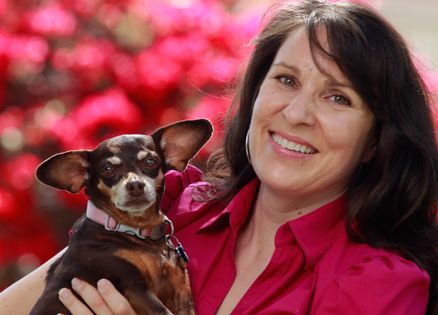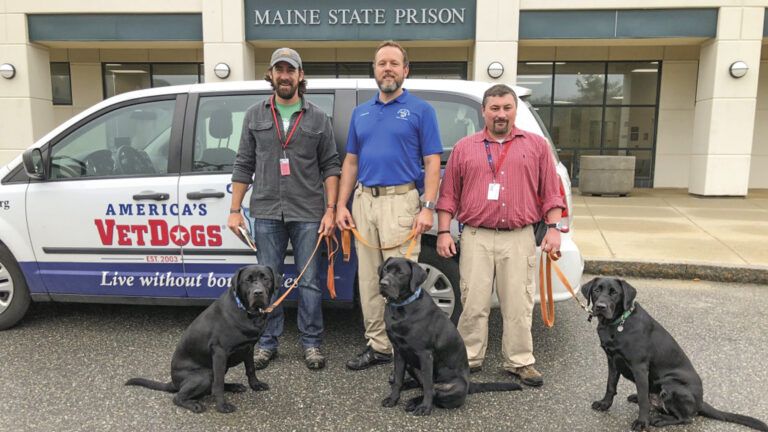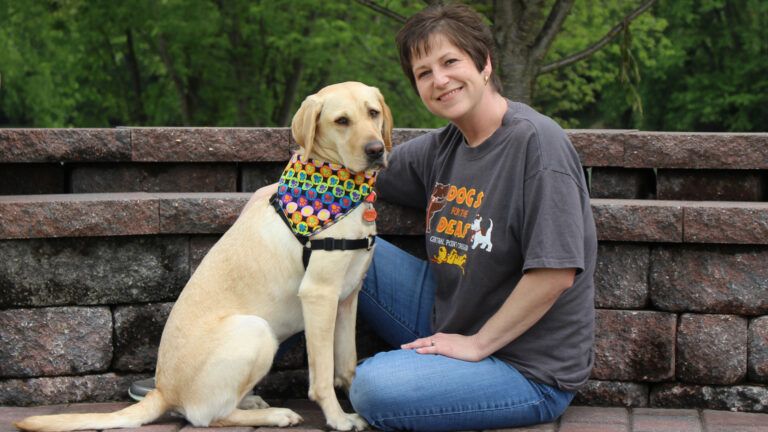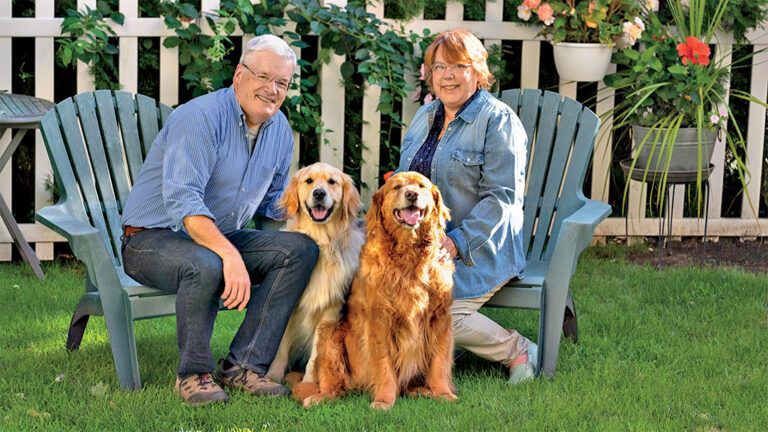My vet tried to break the news to me gently. “I’m sorry, Marni. Tula’s got diabetes.”
My 10-year-old miniature pinscher Tula quivered on the examination table. I’d been worried about her lately; she was drinking and going to the bathroom more often. I cringed at the vet’s next words: “She’ll need insulin shots for the rest of her life. Twice a day to start, maybe more. You’ll need to administer the shots twelve hours apart. You can’t fudge it. Morning and night, same time, every day. I’ll write you a prescription. Fill it as soon as you leave here.”
I adored Tula. Eight years old when I adopted her from a shelter, she wasn’t the brightest thing in the world, a little spacey, the exact opposite of my other min pin, Tinker, who’s smart as a whip. But I loved Tula all the more for her quirks. I remembered her wariness the day I brought her home.
I gave her some space and a few days later she jumped on my bed and lay down, staring at me with a heartbreaking, tentatively trusting expression. She’d been abandoned twice before I adopted her. “I’ll never leave you, Tula,” I promised her. “I’m going to be your forever mommy.”
I still meant that. But this particular night, late in a fluorescent-lit vet’s office, hearing this terrible diagnosis, I wondered if I was really up to being Tula’s mom.
My life was a mess. Two months earlier I’d been laid off from my copywriting job at an online shoe retailer. Southern California was gripped by recession and I was already having to dip into my retirement to pay bills. Could I afford a lifetime of diabetes care? And what about those shots? I was single. Could I handle caring for Tula now all by myself? What if I got a full-time job? What if I had to work late or travel for business?
I shook these thoughts away, paid the vet bill (barely) and bundled Tula into the car for the drive to the pharmacy. I nearly burst into tears when the pharmacist asked for details about which kind of insulin I needed. “I have no idea!” I wailed. “It’s for my dog.” Eventually the pharmacist figured it out and handed me a package of insulin and two months’ supply of needles. I tried not to obsess over the cost. I’d gladly paid for both dogs’ various ailments over the years, but now I couldn’t help thinking about my dwindling bank account. Oh, Lord, I moaned, heading back out into the dark parking lot, I don’t know if I can handle this.
The first few days were rough. I had to feed Tula the moment she awoke at six then give her a shot an hour later. That was way earlier than I was used to getting up. In the three months since I’d been laid off, I’d gotten used to sleeping in. I stumbled out of bed, fed Tula and administered the shot. Luckily, Tula was more stoic than I; she didn’t even seem to mind the needle prick. She gazed up at me with that same trusting expression. “Oh, Tula,” I murmured. “I guess we’ll figure this out one way or the other.”
I looked around. It was kind of nice being up so early. The light coming in the windows was pretty. Everything was still, quiet. I ate breakfast then booted up the computer and cruised a few job-hunt sites. I had to admit, I’d kind of been letting my job search lag. It was so much easier to lie on the sofa reading a book or watching TV. I saw a few job possibilities and sent out résumés. Wow, I thought. I’ve accomplished more this morning than I usually do all day.
Gradually the insulin routine got easier. One morning I took the dogs for a long, leisurely walk and discovered how refreshing it was to be out so early with the sun just filtering through the trees. Walks became part of my routine. That was something else I’d let go in my post-job-loss lethargy: exercise.
In fact, so much about my life seemed different. Not just how I organized my day but how I felt about myself. Every time Tula gave me that trusting look, every time I saw her drink normally and curl up to sleep, contented and healthy, I felt a strong sense of accomplishment.
I was still unemployed and still struggling. But I was taking good care of my dog and myself. I was being responsible. I was managing, after all. Could it be that the help I’d demanded from God had been there all along—inside me?
It’s been nearly a year since Tula was diagnosed with diabetes. Like many diabetic dogs, she has developed cataracts and gone mostly blind. But she’s as happy as ever. She has even memorized her way around the house and definitely loves her special, gourmet diabetic diet. Recently I got a call from the shoe retailer. Business was picking up again, they said. Could I come back to work?
You might say it’s a new morning in my life—or maybe many new mornings, all those mornings I get up to give Tula her shot. I suppose that’s what being a forever mommy is all about.






